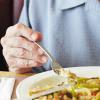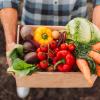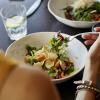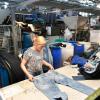Fewer foodborne infections for the first time in years
For the first time since 2016, the Netherlands saw a reduction in the number of foodborne infections in 2023 compared to the year before. The number of outbreaks decreased from 1,173 in 2022 to 911 in 2023. The number of people who became ill decreased from 4,505 to 3,500.








